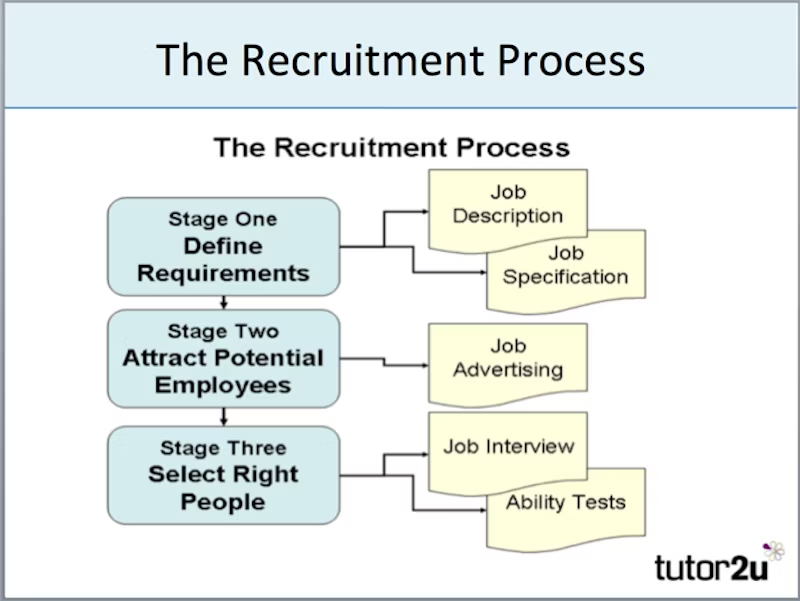Study Notes
Recruitment & Selection - Overview
- Level:
- GCSE, AS, A-Level
- Board:
- AQA, Edexcel, OCR, IB
Last updated 22 Mar 2021
Recruitment and selection is the process of identifying the need for a job, defining the requirements of the position and the job holder, advertising the position and choosing the most appropriate person for the job.
Undertaking this process is one of the main objectives of management. Indeed, the success of any business depends to a large extent on the quality of its staff. Recruiting employees with the correct skills can add value to a business and recruiting workers at a wage or salary that the business can afford, will reduce costs. Employees should therefore be carefully selected, managed and retained, just like any other resource.

Managing job applications
For many jobs, a business will ask applicants to provide a Curriculum Vitae (CV). This is a document that the applicant designs providing the details such as:
In some circumstances however an applicant may be asked to fill in a firm's own application form. This is different from a CV in that the employer designs it and sends it to applicants, but it will still ask for much of the same information. It has the benefit over a CV in that a business is able to tailor it to their exact needs and ask specific questions.
Once a business has received all the applications, they need to be analysed and the most appropriate form of selection decided upon. When analysing applications, a business will normally sieve the applications into three categories.
(1) Those to reject
Candidates may be rejected because they may not meet the standards set out in the job specification such as wrong qualifications or insufficient experience or they may not have completed the application form to a satisfactory standard
(2) Those to place on a short list
Often comprises 3-10 of the best candidates who are asked to interview
(3) Those to place on a long list
A business will not normally reject all other candidates immediately but keep some on a long list in case those on the short list drop out or do not appear suitable during interview. The business would not want to incur costs putting them through the selection process, such as interviews, unless they have to.
You might also like
Ansoff Matrix
Study Notes
Boston Matrix (Product Portfolio Model)
Study Notes
Core Competencies
Study Notes
SWOT Analysis
Study Notes
Budgets - Introduction
Study Notes
Variances - Introduction
Study Notes
Variances - Illustrated Example
Study Notes
Budgets - Limitations and Potential Problems
Study Notes